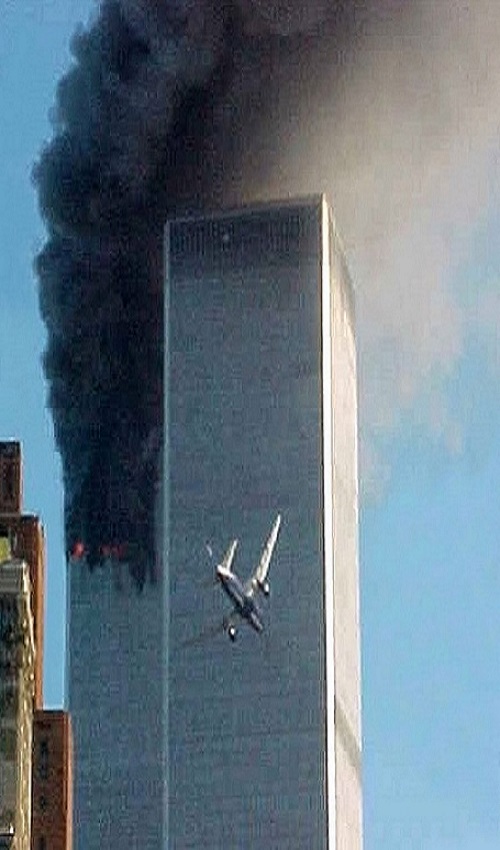9/11 Remembered: FBI counterterrorist ignored and disliked by Clinton
Each year on September 11, many police officers and security managers remember the contributions of the Federal Bureau of Investigation’s Counterterrorism Chief, the late John P. O’Neill. While President Bill Clinton and his Administration slept during the Muslim terrorists’ war against the United States, O’Neill did all he could to fight the radical Islamists who wished to place the American people in harm’s way.
During an exclusive interview in 2006, President Bill Clinton told Fox News Channel’s Chris Wallace that no one knew about Al-Qaeda in 1993?

My first thought when I heard Clinton was: What about the FBI’s chief of counterterrorism John O’Neill? Not only did he know about Al-Qaeda, but he warned the Clinton Administration, the FBI, the CIA and anyone else who would listen that the terrorist group was a danger to the security of the United States. So once again, President Clinton played fast and loose with the truth on national television (“I did not have sex with that woman…).
I knew O’Neill and respected his work up to and including his service as Director of Security for the World Trade Center, where he died on 9-11. I believed him more than that pathological liar named Clinton. O’Neill continues to be praised by the membership of the National Association of Chiefs of Police and other police organizations. No man trained more police chiefs, commanders and officers in counterterrorism than the FBI’s John O’Neill.
While the Clinton Administration slept during the terrorists’ war against the United States, O’Neill did all he could to fight the radical Islamists who wished to place the American people in harm’s way. After the first attack on the World Trade Center, O’Neill investigated the link between the Islamists who perpetrated the bombing and the terrorist group in the Middle East and North Africa know as Al-Qaeda.
The first WTC bombing was treated and prosecuted as a crime, while O’Neill wanted to follow-up with an extensive investigation of international terrorism. It didn’t happen.
O’Neill served in a number of critical positions in the FBI prior to his retirement in August, 2001 when he went to work as the director of security for the enormous World Trade Center. Little did he know he would only serve less two months before facing the worst terrorist attack on U.S. soil in American history.
O’Neill became an FBI agent in July, 1976. His first office was in Baltimore, where his investigative assignments included Foreign Counterintelligence,  Organized Crime, and White-Collar crimes.
Organized Crime, and White-Collar crimes.
From 1987-1991, he served in several positions within the Criminal Investigative Division and Inspection Division at FBI Headquarters in Washington, D.C. In 1991, he was the Assistant Special Agent-in-Charge of the FBI’s Chicago Field Office. In 1994, Mr. O’Neill was designated Inspector in Charge of a multi-agency task force investigating domestic violence in the United States.
O’Neill was eventually appointed Chief of the FBI’s Counterterrorism Section at FBI Headquarters where he was responsible for the direction and support of all of the FBI’s international and domestic counterterrorism investigations.
Of particular note during this time, was the capture and extradition of bombing suspect Ramzi Yousef for his role in the first attack on the World Trade Center, the investigation of the bombing of the Alfred P. Murrah Federal Building in Oklahoma City and the investigations of the bombings of U.S. facilities in Saudi Arabia. He also supervised investigations of numerous other terrorist incidents involving Americans and American interests around the world.
SAC O’Neill served as the FBI representative on the Interagency Counterterrorism Committee of the National Security Council. He was also a member of the Terrorism Committee of the International Association of Chiefs of Police and the Terrorism Subcommittee of the American Society of Industrial Security.
O’Neill faced political opposition from members of the Clinton Administration, who ignored his reports and warnings. On many occasions he was denied funding for his frequent trips to the Middle East to investigate leads on terrorist groups. On several trips, he paid for his own expenses — plane fare, hotel accommodations, etc. — in order to wage his one man war against terrorism.
Turf wars and dislike of O’Neill by members of the Clinton Administration in Washington meant that the FBI’s New York office was left out of the investigation, and later that O’Neill was left behind when other New York-based agents were sent to the region to pick up leads. O’Neill decided to continue fighting terrorism in the private sector.
After claiming ignorance of Al-Qaeda in 1993, Clinton takes a giant leap and says he came closest to capturing Osama bin Laden. Yes, close, but no cigar. Unless it was the famous cigar he shared with his intern Monica. Mr. Clinton should remember that the road to perdition is paved with “almosts.”


